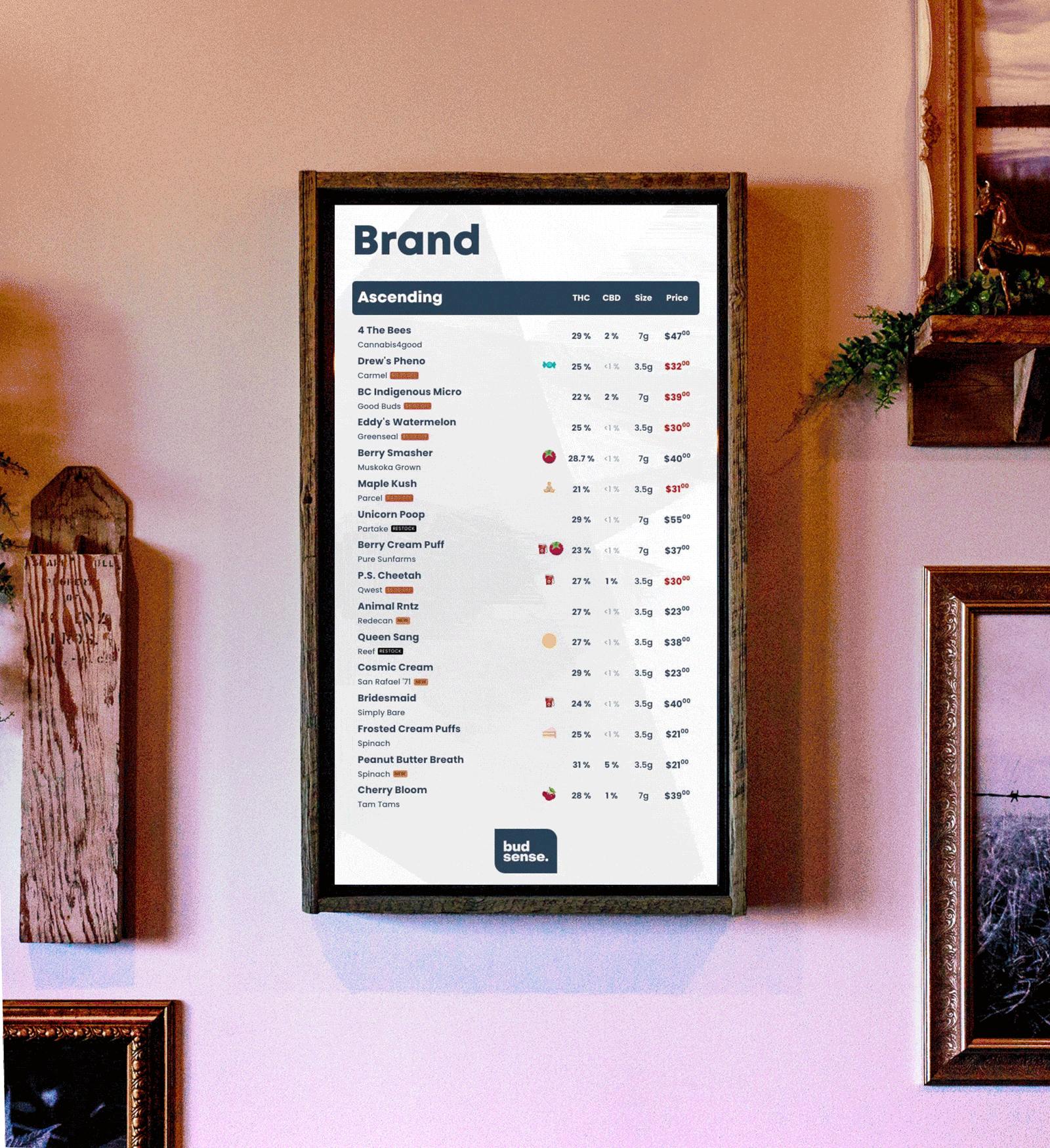10 Best Ways to Sort Your Cannabis Menus with BudSense
Creating an optimal cannabis menu is essential for enhancing customer experience and maximizing sales. BudSense offers highly customizable product sections that can be individually tuned to sort by various options, making it easy to tailor your menu to your customers' preferences.
Here’s a quick guide on the best ways to sort your cannabis menu:
1. Brand Alphabetically
Sorting by brand alphabetically helps customers easily locate products from their preferred brands. This method is particularly useful for customers loyal to specific brands and ensures a neat and organized menu.
Ascending: Brands listed from A to Z.
Descending: Brands listed from Z to A.
2. Sativa, Indica, Hybrid
Sorting by strain type (Sativa, Indica, Hybrid) categorizes products based on their effects, helping customers choose the right product for their desired experience.
Ascending: Lists Sativa first, followed by Hybrid, and then Indica.
Descending: Lists Indica first, followed by Hybrid, and then Sativa.
3. CBD Percentage
Sorting by CBD percentage assists customers who are looking for specific CBD benefits without strong psychoactive effects.
Ascending: Products with lower CBD percentages are listed first.
Descending: Products with higher CBD percentages are listed first.
4. THC Percentage
Sorting by THC percentage caters to customers seeking varying potency levels, from mild to strong effects.
Ascending: Products with lower THC percentages listed first.
Descending: Products with higher THC percentages listed first.
5. Product Title
Sorting by product title organizes items alphabetically by their product names, making it easy for customers to find specific products.
Ascending: Products listed from A to Z.
Descending: Products listed from Z to A.
6. Price
Sorting by price allows customers to easily find the least and most expensive items on the menu.
Ascending: Lower-priced items are listed first.
Descending: Higher-priced items are listed first.
We’re not done yet! Here are even more fantastic ways to organize your menus:
7. Unit Size
Sorting by unit size helps customers choose products based on the quantity they want to purchase, which is particularly useful for budget-conscious shoppers or those trying a product for the first time.
Ascending: Smaller unit sizes are listed first.
Descending: Larger unit sizes are listed first.
8. Manufacturer
Sorting by manufacturer can be useful for customers who trust specific producers.
Ascending: Manufacturers listed from A to Z.
Descending: Manufacturers listed from Z to A.
9. Inventory Count
Sorting by inventory count helps highlight products based on their availability, ensuring customers see what’s currently in stock and reducing frustration from out-of-stock items.
Ascending: Products with lower inventory are listed first.
Descending: Products with higher inventory are listed first.
10. Secondary Price
Sorting by secondary price (e.g., price per gram) provides customers with a clearer idea of product value, especially useful for those comparing costs across different products.
Ascending: Lower-priced items are listed first.
Descending: Higher-priced items are listed first.
BudSense's customizable sorting options don't stop there. Here are a few more to consider:
Using BudSense, you can individually tune product sections to sort by a multitude of options, allowing you to create a cannabis menu that is both user-friendly and effective at driving sales. Whether you prioritize brand loyalty, strain type, potency, or price, the flexibility of BudSense ensures that your menu meets the unique needs of your customer base. With the ability to sort in both ascending and descending order, you can customize the presentation of your products to maximize appeal and efficiency.
It’s possible to sort your flower differently from your edibles, different from your daily deals, etc. etc. BudSense’s flexible tools can be used to maximize your customer shopping experience.



























Henry shops for cannabis based on aroma and flavour, seeking out products with fruity terpenes like limonene and myrcene. For him, the right scent is the deciding factor in every purchase. As more consumers prioritize sensory experiences, dispensaries can cater to this shift by highlighting terpenes and customizing their menus to match customer preferences.
Is your dispensary ready to help Henry find his favourite flavours?